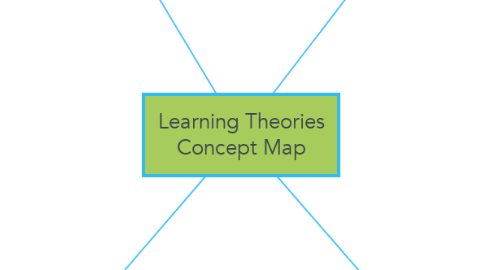
1. Cognitivism
1.1. Theorists
1.1.1. Robert Mills Gange: Conditions of Learning
1.1.2. David Ausebel: Subsumption Theory
1.2. View of Learning / View of Knowledge
1.2.1. Learning occurs through internal, cognitive processing of information and goal is to move knowledge from short-term to long-term memory.
1.2.2. Developing meaningful ways to assist the learners in efficient ways of coding, transforming, storing, and retrieving information.
1.3. Learning informing instruction
1.3.1. note cards and maps
1.3.2. end of session quizzes
1.3.3. Courses engaging and fun to motivate
2. Social Learning
2.1. View of Learning
2.1.1. understanding stimuli and interpretation is skill
2.2. View of Knowledge
2.2.1. Knowledge is co-constructed through interactions
2.3. Theorists
2.3.1. Lev Vygotsky
2.3.1.1. Sociocultural Learning Theory
2.3.2. Albert Bandura
2.3.2.1. Social Learning Theory
2.4. Theory informs instruction
2.4.1. Online community through communication and discussion
2.4.2. Development of community through online collaboration
3. Constructivism
3.1. Theorists
3.1.1. Jean Piaget
3.1.2. View of Knowledge: Learning is active process that is acquired. Knowledge is actively constructed by learners and learners build off previous knowledge and experience.
3.1.3. Jerome Bruner
3.2. View of Learning: Learners use sensory input and constructs meaning out of it.
3.3. Theory Informs Instruction: Facilitators are teachers aiding in own understanding of learners outcomes and roles. Learners are moved to understand own conclusions.
4. Behaviorism
4.1. Theorists
4.1.1. B.F. Skinner
4.1.1.1. Operant Conditioning
4.1.2. Ivan Pavlov
4.1.3. John B. Watson
4.2. View of Knowledge
4.2.1. Learning is a changing behavior and knowledge is a collection of behavior
4.3. View of Learning
4.3.1. Educators must reinforce desired behaviors
4.4. Theory Informs Instruction
4.4.1. Scaffold
4.4.2. Frequent
4.4.3. Motivation is extrinsic
